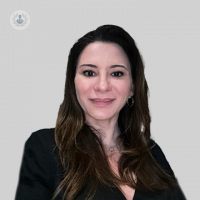Complex care
Dr Deborah Zeitlin - Paediatrics
Created on: 11-30-2023
Updated on: 07-01-2024
Edited by: Karolyn Judge
What is complex paediatric care?
Complex care in paediatrics is treating the child holistically - and includes the input from the family and carers - where the patient has rare, difficult-to-treat conditions, or more than two chronic conditions.
It's anything that isn't a fast, easy fix, or something that they've seen previous paediatricians about and it hasn't been resolved.
Paediatric complex care specialists also deal with anything that's unusual or rare, where there isn't a lot of information known about it.

What are the challenges involved in managing paediatric patients with complex chronic conditions?
Where there are two or more conditions in a child, it gets very challenging to be able to - for the family, and for other healthcare professionals - manage all of the different people involved.
In paediatric complex care, the doctor's role is treating the child and managing them for what they've come to consult about, but also linking in with every other professional involved in that child's treatment. So, everybody has the same amount of information and everyone's aware of what's happening as soon as the information is available to the consultant. Then everyone is on the same page.
In the private sector, complex care consultants see patients with two or more conditions. One of the other things consultants like myself do, is to provide support to the family, for example where there's a mixture of private and NHS care. It's advisable to try to seamlessly blend them together with areas of communication.
What is the most common condition that involves complex care?
Mental health conditions are really quite a substantial amount of these complex care issues.
As an example, some parents reach out because they want a general paediatrician involved in their son's eating disorder. He's under 10 years old and has been admitted to an NHS ward at the moment, and the system dictates that, because he's under the mental health services - that's CAMHS - he won't automatically get a paediatrician when he's discharged. So, post-discharge care can be very fragmented because he's admitted on the ward at the moment.
One of a private complex care consultant's roles is that, if the parents want it, is to go along to meeting with various specialists from the NHS side and support them so they have an oversight of everything and can liaise with everyone else.
A meeting with is held with parents, with child and adolescent psychiatrist from CAMHS and the mental health co-ordinator. It's then possible to plan out what the next steps are for this child in hospital, and then if he's discharged, what the plan is and who is going to have what roles there.
What are the ethical factors involved in complex paediatric care?
Paediatric complex care ethical factors are the same, regardless of whatever condition you have. It's the child first and that pretty much encompasses the ethic in paediatrics, but also it's the family and child first and always. It's what's in the child's and family's best interest.
There isn't any difference in general paediatrics and complex care apart from the duty of care on the specialist's part. This is to ensure all professionals involved in that child's care whether they're NHS or private, or kept informed, as long as there's consent from the parents.
One of the things consultants can do is conduct a questionnaire where parents consent to communication options, but also whether they want a chaperone present for examination of their child. That's no different to the general side to the complex care side, but the consultant can always check who they want the information to go to and will always try to encourage them to share it with as many people as possible. Then everyone is kept aware of everything.

